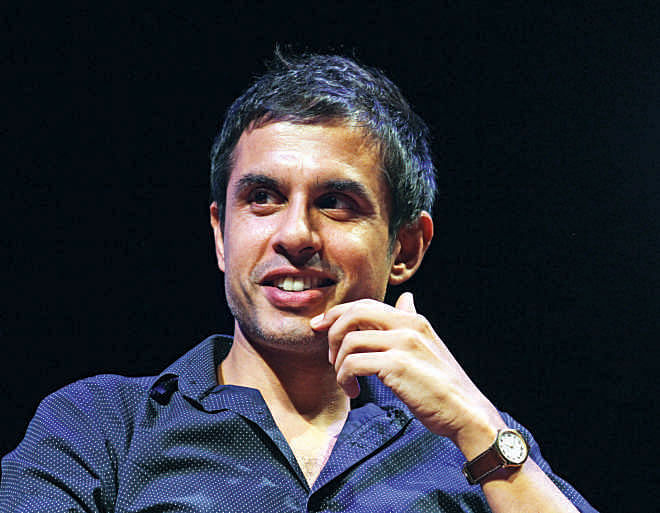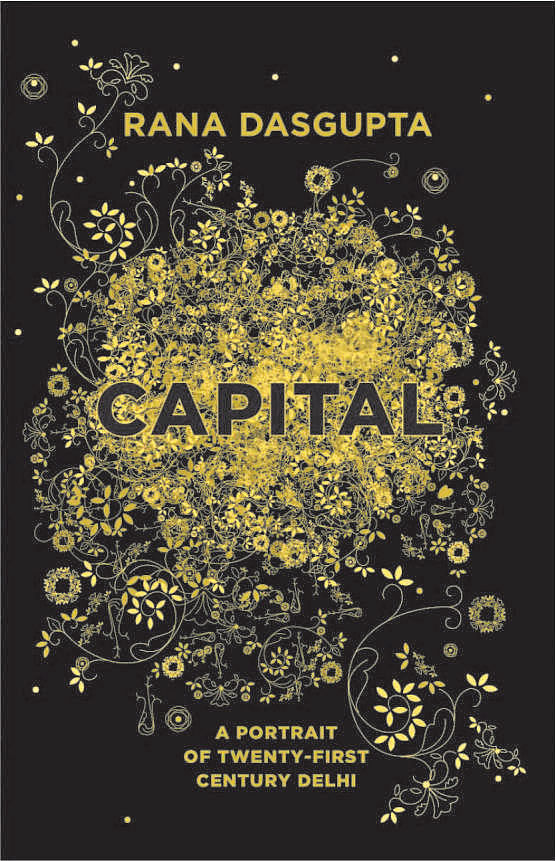“I'm Pro-capitalist”
“I'm Pro-capitalist”
An encounter with Rana Dasgupta about his literature and political stand

Why did you choose to be a writer?
I did lots of the things, a corporate job, thought to be an academic before I started writing. But I find in the end that writing is the only way that I can process the world. I think this is what I was born to do. And I don't have any other choice. Of course the rewards of writing are not at the level closer to my previous job. When I am writing I'm alone, I may make some big mistakes and I have months in hand to correct. But in a corporate house you will get feedback every day about what is going on. I think the feeling of expressing difficult ideas and saying something about the world and improving or making the world more beautiful is a very large reward.

Your first book Tokyo Cancelled has a series of links of short stories. Why do you follow this specific style?
Well every book that I have written has some difference. So the first book is a collection of short stories, the second one is a novel and the third one is a book of non-fiction. Every time I write a book I want to challenge myself to do something new. My first book of short stories, I wrote that because I was always interested about one question - what is global culture. We know what global commerce is, we know about global military and commercial networks, but what is global culture? It is not just Bangladeshi culture transported to London or something like that. So I would like to see what links us all together. When I was writing my first book I thought one of the languages that we all understand- fairytales, folk tales and myths, a very ancient form of storytelling. So I wanted to write a book on different contemporary folktales linked all together. And through that I was trying to create a universal language.
You were trying to create a global or universal language and culture in your first book. But do you think it is really possible to form a global culture?
I think everything draws its power from local things. And writers, who become very universal like- Gabriel Garcia Marquez, is writing about a small fictional town of Colombia as he is deeply rooted in that place, far from the centre of the world. And because he writes about it with such power and understanding that seems to travel elsewhere. We don't know how Colombia looks like but we know where the story is rooted. It is a sort of platonic form or sort of ideal form. So I think nobody believes or wants one culture for everyone. On the other hand I think the concept of nation is very unsatisfying. All of us are bigger than or smaller than countries. So there is all kinds of richness that is lost by defining ourselves with national cultures. And I think I'm interested in these two levels- very local and the universal. And at this point of time it is a very political project. We all have responsibilities towards each other, no matter how we define ourselves. We are part of a commercial, political and bureaucratic system that links with everyone else. So in order to have a sense of brotherhood, affinity or connection we also need some shared cultural links. A lot of our culture links us to people from our own country. We have responsibilities to people because they have the same nation as we do. But you know, in our time we have a different question, how we define our responsibilities to the people living on the other side of the world. His language we don't speak. It is a very difficult question and we really don't know how to deal with it strongly.
Why do you choose to write about Indian bourgeoisie? Is it because you have seen the capitalist system very closely in a corporate house?
To some extent. But I'm not an anti capitalist. In fact I'm pro-capitalist I would say. But the word capitalism is used for a large verity of systems. In our present era we have lost a lot of critical facts which we have towards capitalism. I mean it was communism which rescued capitalism. If there had not been a massive communist threat to the capitalist system between about 1850 and 1950 then capitalism would never had given a way in the west. We actually had in Europe in post second war world period a capitalism that was extremely egalitarian and generated enormous rewards for nearly everyone compared to pretty much any other system that we have ever seen in the history of the world. That was incredible. Now equality in Britain and America is growing much faster. All the changes are coming through capitalism. And my last book Capitalism is all about what this change means.